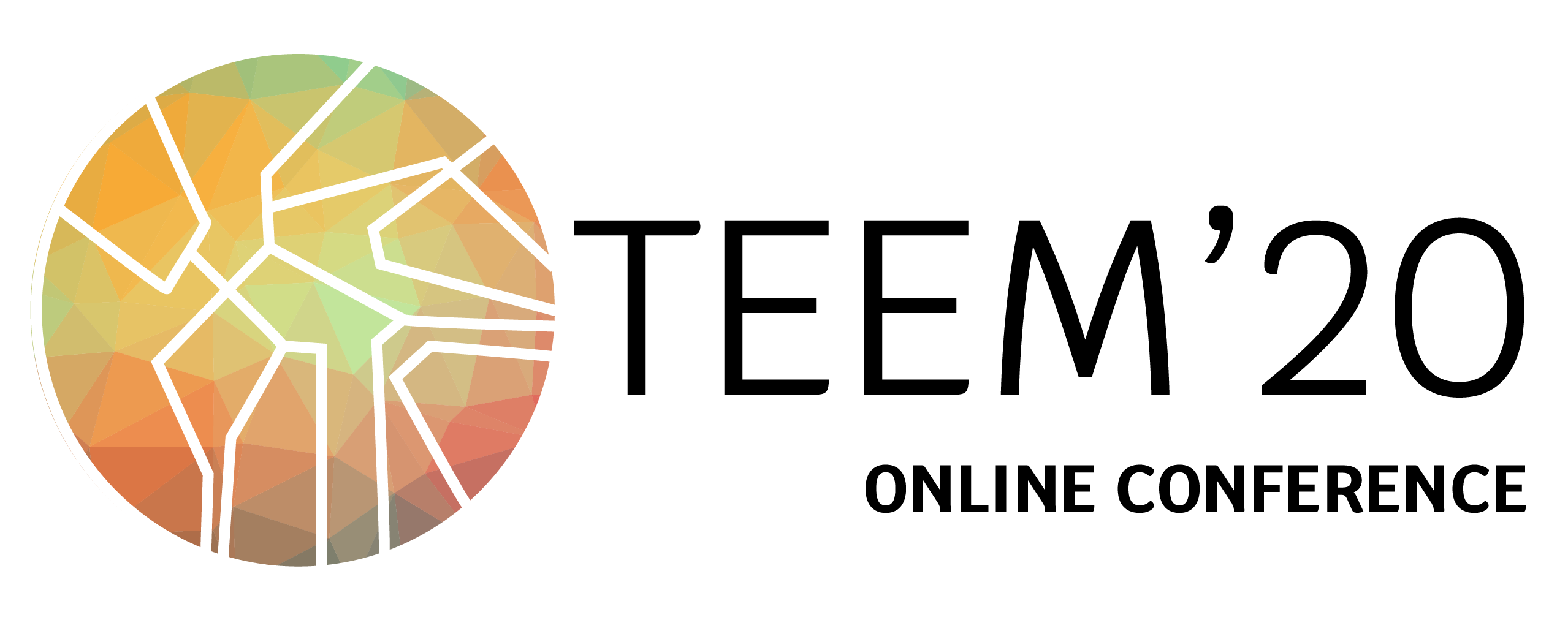Presentation
This track hosts the 11th International Workshop on Software Engineering for ELearning (ISELEAR’20). This workshop is focused on all the Software Engineering aspects of the e-Learning application domain.
In general, an elearning system is a very complex software application that can be formed by an ecosystem of software components such as: a learning management system (LMS), content editors, digital object repositories, electronic whiteboards, tablets, mobile applications, social networks … However, It must be also take into account in these systems the end users who will use the application such as students, teachers, administrators, parents and others. Likewise, a multidisciplinary group of professionals are also involved in the design of the application: professors, pedagogues, computer scientists, content designers … Because of these conditions the management of the development of such a system requires the use of software engineering techniques in order to ensure its realization with quality.
In the last decade, the development of elearning systems has become widespread and adaptations of traditional software engineering techniques have emerged to the characteristics of this field such as metrics, quality management standards, development methodologies …For these reasons, it is possible to consider a new emerging discipline, that of e-Learning Software Engineering, which addresses all the aspects of the systematic conception, design, development and maintenance of e-Learning solutions.
However, Software Engineering topics are treated in a light way in typical eLearning scientific conferences, which generally are focused on pedagogical and user-centered aspects of advanced technologies and educational systems, while aspects like modeling, design, project planning, life-cycle, etc. are barely addressed or treated as collateral matters. The ISELEAR Workshop series are oriented to bridge this gap.
Topics
Topics of interest include but are not limited to:
- Software Requirements Engineering in eLearning.
- Software architectures, modelling, specification, design and programming of eLearning systems.
- Software technologies applied to the development of complex eLearning systems.
- Management of multidisciplinary teams of instructors, domain experts, and developers in the production and maintenance of e-Learning systems, applications and content.
- Testing, verification and validation of software in eLearning.
- Software Quality Assurance in eLearning.
- Empirical methods in E-Learning Software Engineering.
- Model-Driven Software Engineering for e-Learning.
- Domain Analysis and Domain Engineering for e-Learning.
- Software Language Engineering and e-Learning.
- Metrics and estimation methods for Engineering Education.
- Development methods of elearning ecosystems.
- Evaluation of the usability of applications, systems and platforms, and user satisfaction in Engineering Education.
- Process models for Engineering Education.
- Standardization and normalization.
- Certification of Quality Software.
- Development of methodologies for Engineering Education.
- Practical experiences and lessons learned.
Track Scientific Committee
Miguel Ángel Conde (Universidad de León, Spain) – Chair
José Luis Sierra Rodriguez (Complutense University of Madrid , Spain) – Chair
Antonio Sarasa Cabezuelo (Universidad Complutense de Madrid, Spain) – Chair
Cristina Gomes (Polytechnic Institute of Viseu, Portugal)
Maha Khemaja (University of Sousse, Tunisia)
Ana María Ortega (IES. Padre Dante Dario Selli, Argentina)
Maria José Marcelino (Universidade de Coimbra, Portugal)
Lijia Lin (East China Normal University, China)
Ivan Lukovic (University of Novi Sad, Serbia)
Christos Bouras (University of Patras, Greece)
Ana Fernández-Pampillón Cesteros (University Complutense of Madrid, Spain)
Felix Buendia García (Technical University of Valencia, Spain)
Pilar Rodríguez (University of Madrid, Spain)
José Luis Fernández Vindel (UNED, Spain)
Miguel Angel Sicilia (University of Alcalá, Spain)
Juan Manuel Dodero (University of Cadiz, Spain)
Miguel Angel Redondo (University of Castilla-La-Mancha, Spain)
Carina González (University of La Laguna, Spain)
Ángel Velázquez (University of Rey Juan Carlos, Spain)
Covadonga Diez Sanmartin (University Complutense of Madrid, Spain)
Antonio Navarro Martín (University Complutense of Madrid, Spain)
José Ramón Hilera González (University of Alcalá, Spain)
Miguel Rodríguez Artacho (National Open University, Spain)
Joaquín Gayoso Cabada (University Complutense of Madrid, Spain)
Manuel Caeiro Rodríguez (University of Vigo, Spain)
Camino Fernández Llamas (University of León, Spain)
Salvador Sánchez Alonso (University of Alcalá, Spain)
Marçal Mora-Cantallops (University of Alcalá, Spain)
Lourdes Moreno López (Carlos III University of Madrid, Spain)
Covadonga Rodrigo San Juan (National Open University, Spain)
Martín Llamas (University of Vigo, Spain)
